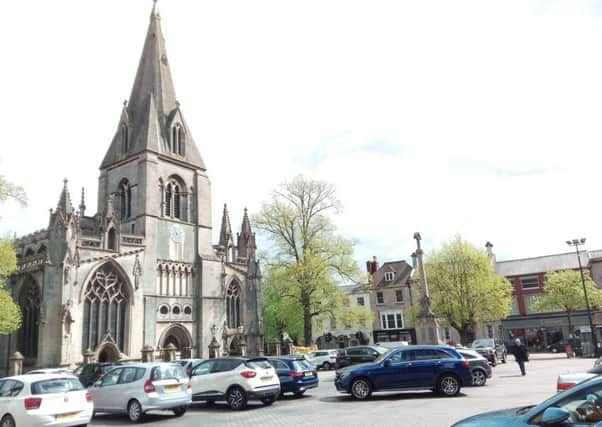Lincolnshire councillors considering call for county’s market towns to avoid competing against each other


Instead they will call for the each town to build on their strengths to create individual identities to attract visitors.
However, a retail expert says cutting competition is not the answer.
Advertisement
Hide AdAdvertisement
Hide AdThe High Street Vitality Working Group, which has been investigating how Lincolnshire County Council can support its town centres, will put five recommendations on the table including calling on the county’s towns to “complement” each other.
The report says: “Market towns in particular must not compete with their neighbours.
“Retailers and investors only have so much money to use, and consumers only wish to buy a product once.”
James Brown, from Lincolnshire County Council’s economic development team, told Local Democracy Reporter Daniel Jaines that the idea was to create an identity to attract visitors
Advertisement
Hide AdAdvertisement
Hide Ad“If you look at market towns, they each have a particular strength and this is saying let’s build on the strength of each market town.”
He said, for example, Louth would be food-based or Horncastle around antiques.
He said this would stop high streets from becoming too uniform or similar.
“It’s about recognising that high streets are now places for people to live, work and enjoy. They’re not just about shopping, therefore, we build around the places we go to have leisure just as much as a simple focus on retail opportunities.
Advertisement
Hide AdAdvertisement
Hide AdHowever, healthy competition is often seen as one of the key tenets of modern business society. Known to drive innovation as well as keep prices in check.
Sleaford-based retail expert Clare Bailey agreed with the premise of creating identity, but said cutting competition would not necessarily help save the high street.
She argued that consumers who needed a specific product would go wherever was most convenient.
“It’s a little bit more complex than the way they’re addressing it,” she said.
Advertisement
Hide AdAdvertisement
Hide Ad“There will always be competition between towns because for many residents shops are right on their doorsteps.
“I’m not going to drive to Grantham if I’m just buying food, however, I’d go if there was something they had to offer that Sleaford can’t.
“I agree with the context in terms of places having an identity but consumers will go where it happens to suit them so there’s going to be a food shop in all these places – with several already competing with each other.”
She said identity would be better off based around making a place a destination and somewhere of note for people.
Advertisement
Hide AdAdvertisement
Hide AdShe pointed to examples such as Woodhall Spa’s 1940s events and the Heckington Show.
“What I enjoy about Boston, for instance, is its history. It’s nice to go to Boston for a day out and a walk along the river.”
The recommendations, alongside others, will be scrutinised at a meeting of Lincolnshire County Council on Tuesday.